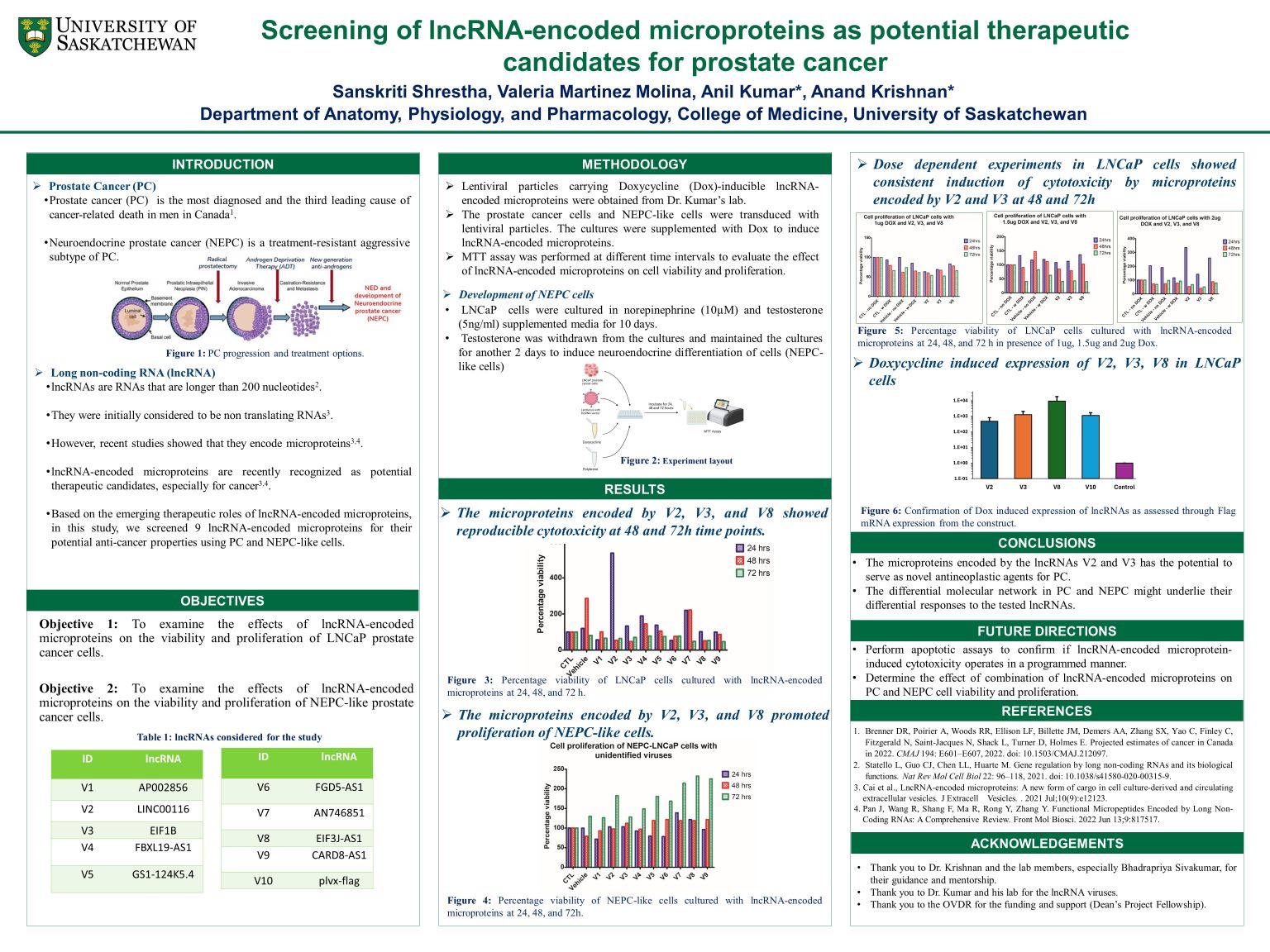
Screening of lncRNA-encoded microproteins as potential therapeutic candidates for prostate cancer
Sanskriti Shrestha
Prostate cancer (PC) is the most diagnosed and the third leading cause of cancer-related death in men in Canada. An advanced stage of PC is called neuroendocrine prostate cancer (NEPC), which is a treatment-resistant subtype of PC because of its transdifferentiated neuroendocrine status. Long non-coding RNAs (lncRNA) are RNAs that have more than 200 nucleotides. They were initially considered to have no translation potential, but recent studies demonstrated that they can encode microproteins. Advanced studies showed that the lncRNA-encoded microproteins have prognostic implications and therapeutic potentials in several diseases, including cancer. In this work, we screened nine lncRNA-encoded microproteins for their antineoplastic roles in PC and NEPC cells in vitro. Our results showed that three of the nine lncRNAs-encoded microproteins tested (LINC00116, EIF1B, and EIF3J-AS1) induce cytotoxicity in PC cells. In contrast, they promoted NEPC cell proliferation. The differential responses of PC and NEPC cells to lncRNA-encoded microproteins may be attributed to the differential molecular signature of PC and NEPC cells. Overall, our study showed that the microproteins encoded by LINC00116, EIF1B, and EIF3J-AS1 are potential suppressors of PC.
